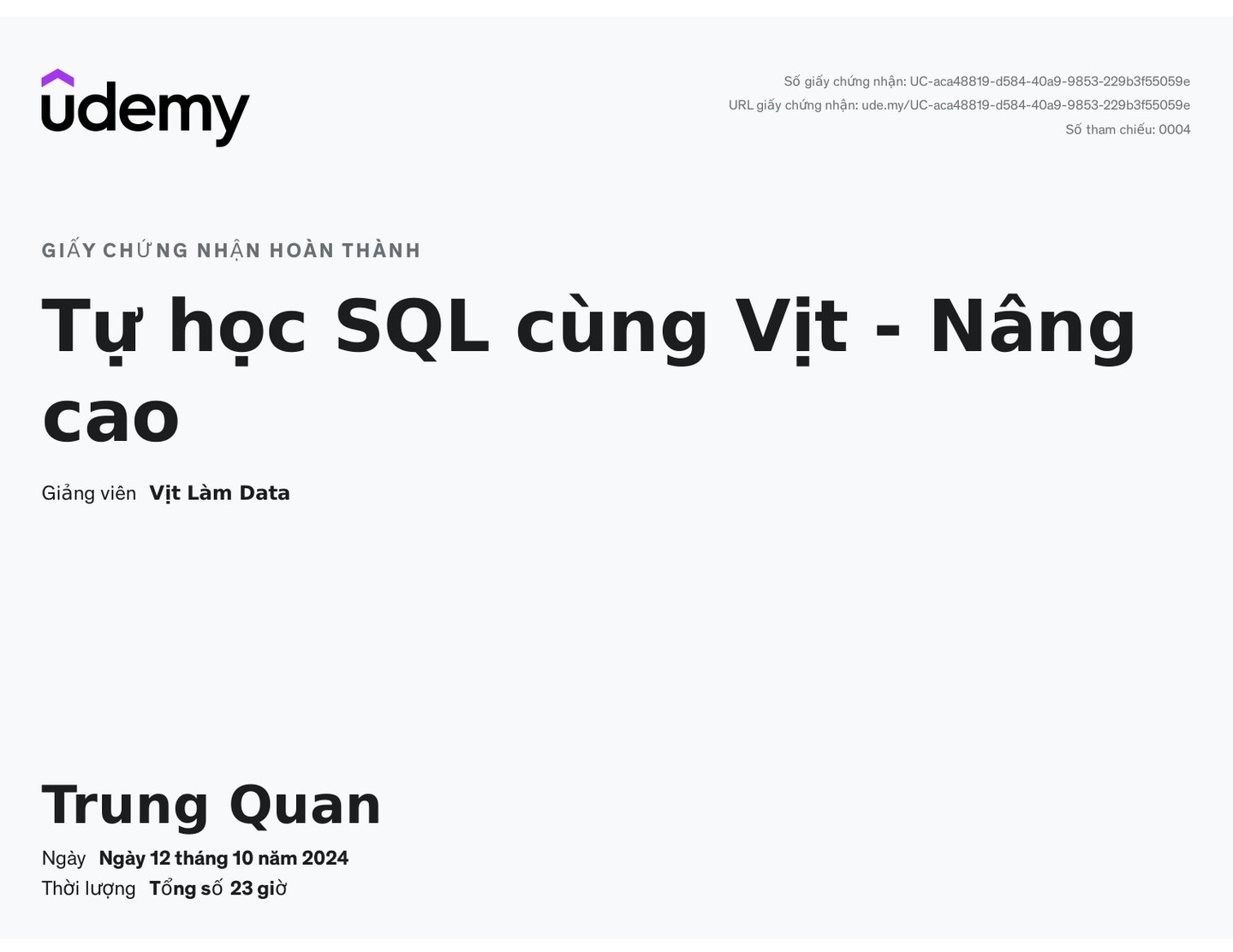

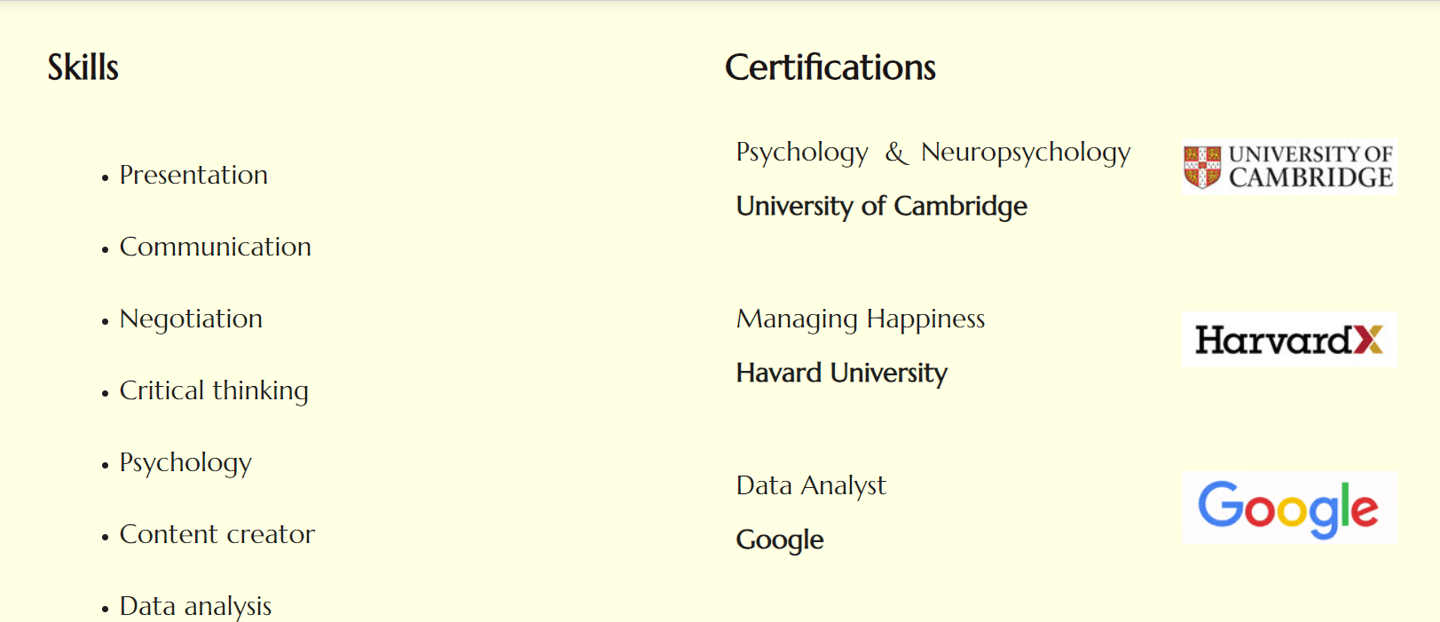



PSYCHOLOGY & NEUROPSYCHOLOGY
UNIVERSITY OF CAMBRIDGE
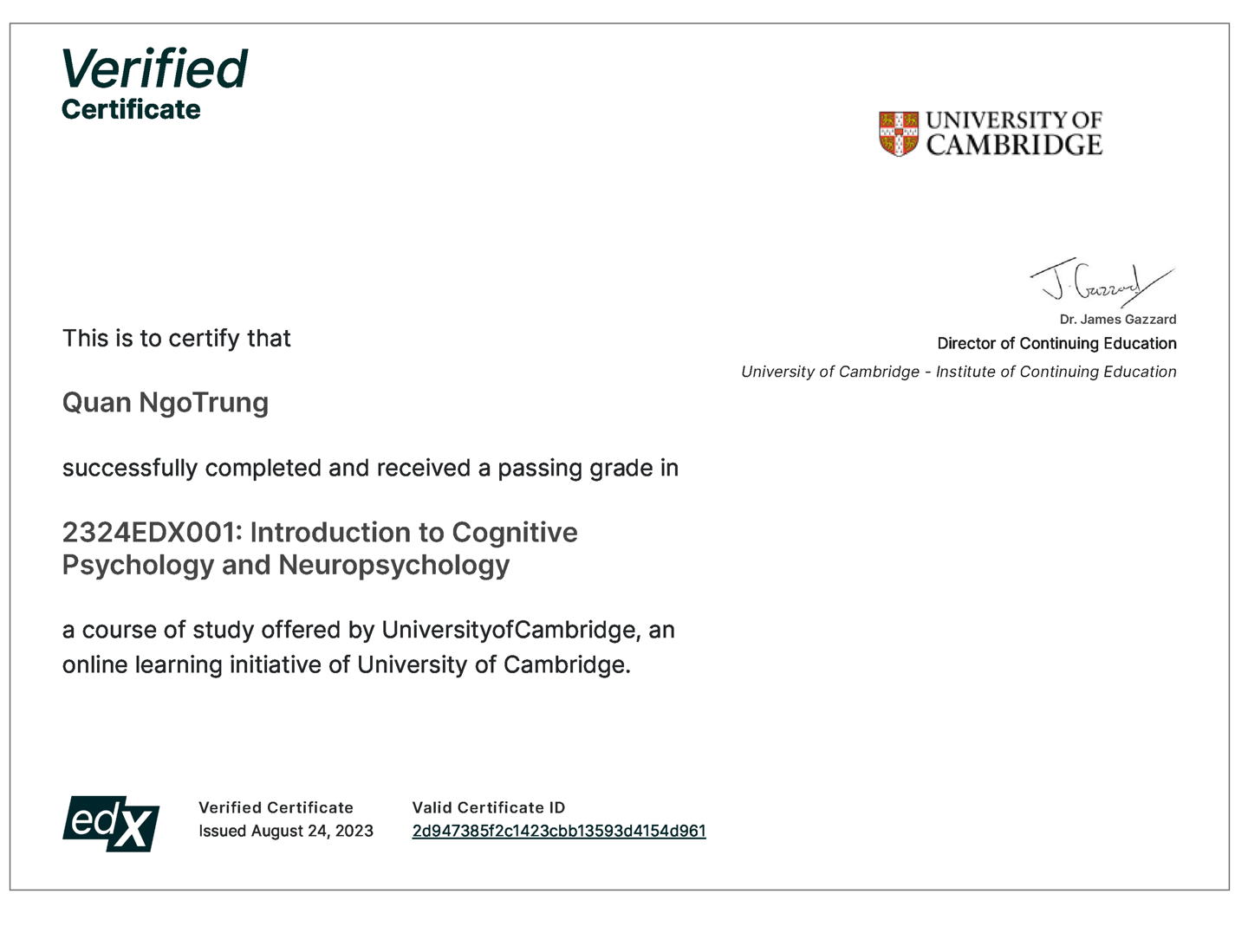

Gained an understanding of the fundamental principles of cognitive psychology and neuropsychology.
Explored the core cognitive functions such as memory, language, attention, and perception.
Developed insights into the key models and findings related to cognitive processes.
Learned about various research methods used to study the mind, brain, and behavior, including behavioral experiments, patient case studies, and neuroimaging techniques.
Acquired knowledge on how humans experience feelings, sensations, and thoughts, and how they learn and interact with others.
Understood the historical development of modern psychology and its evolution over time.
Learned about the concept of brain plasticity and its role in the continuous development of cognitive functions throughout life.
MANAGING HAPPINESS
HAVARD UNIVERSITY
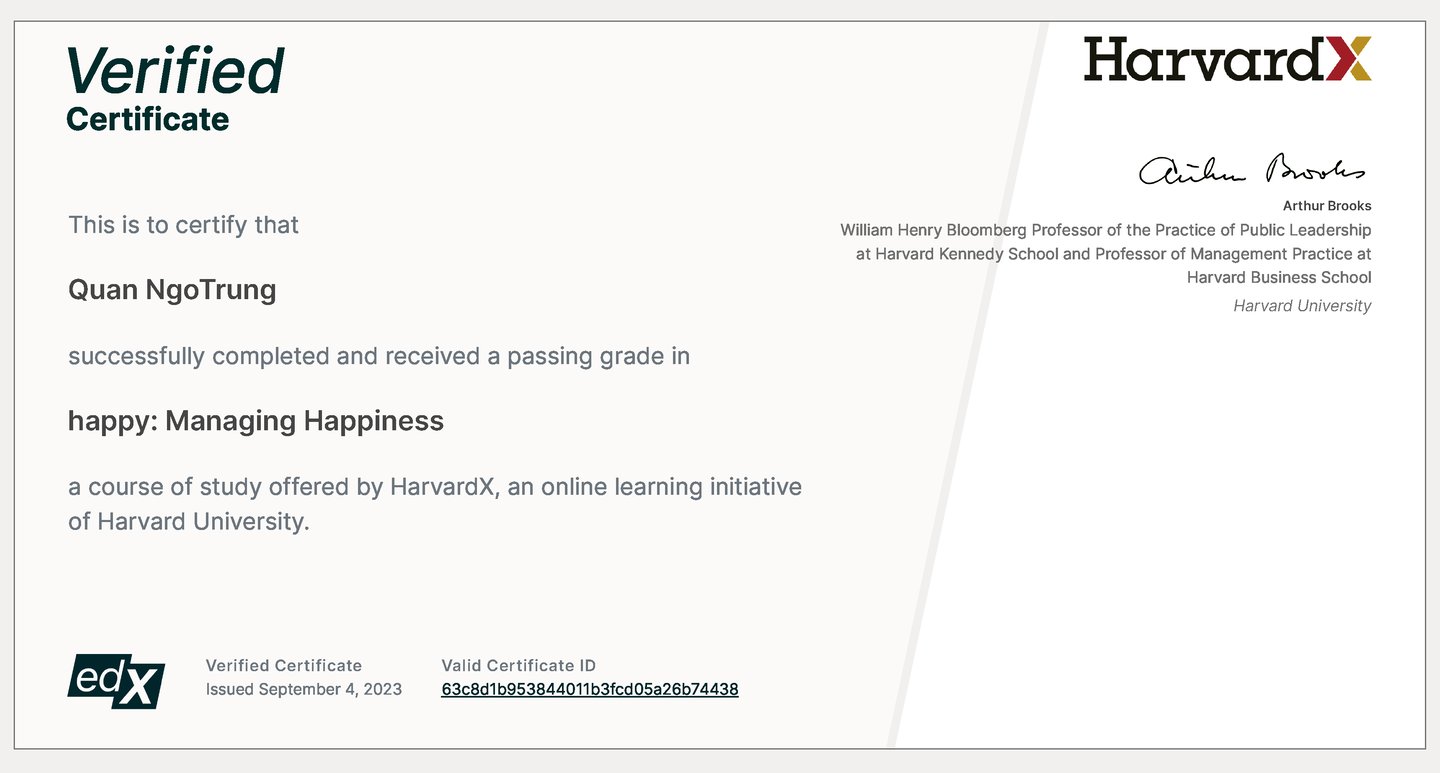

Developed a deeper understanding of happiness, its nature, and what contributes to personal well-being.
Learned practical strategies to actively manage and improve personal happiness through study and effort.
Explored the science of well-being, including insights from social science, positive psychology, neuroscience, and philosophy.
Gained tools to share the principles of happiness with others, contributing to collective well-being and enhancing personal fulfillment.
Understood how to break negative habits and build lasting positive habits that promote happiness and satisfaction.
Learned how happiness is not only a personal journey but also a professional competency that can lead to greater success and fulfillment.
Acquired practical, actionable insights for creating a more purposeful, enjoyable, and satisfying life.
Developed lifelong skills to apply happiness concepts to everyday routines, positively impacting both personal and social environments.
PROFESSIONAL DATA ANALYTICS
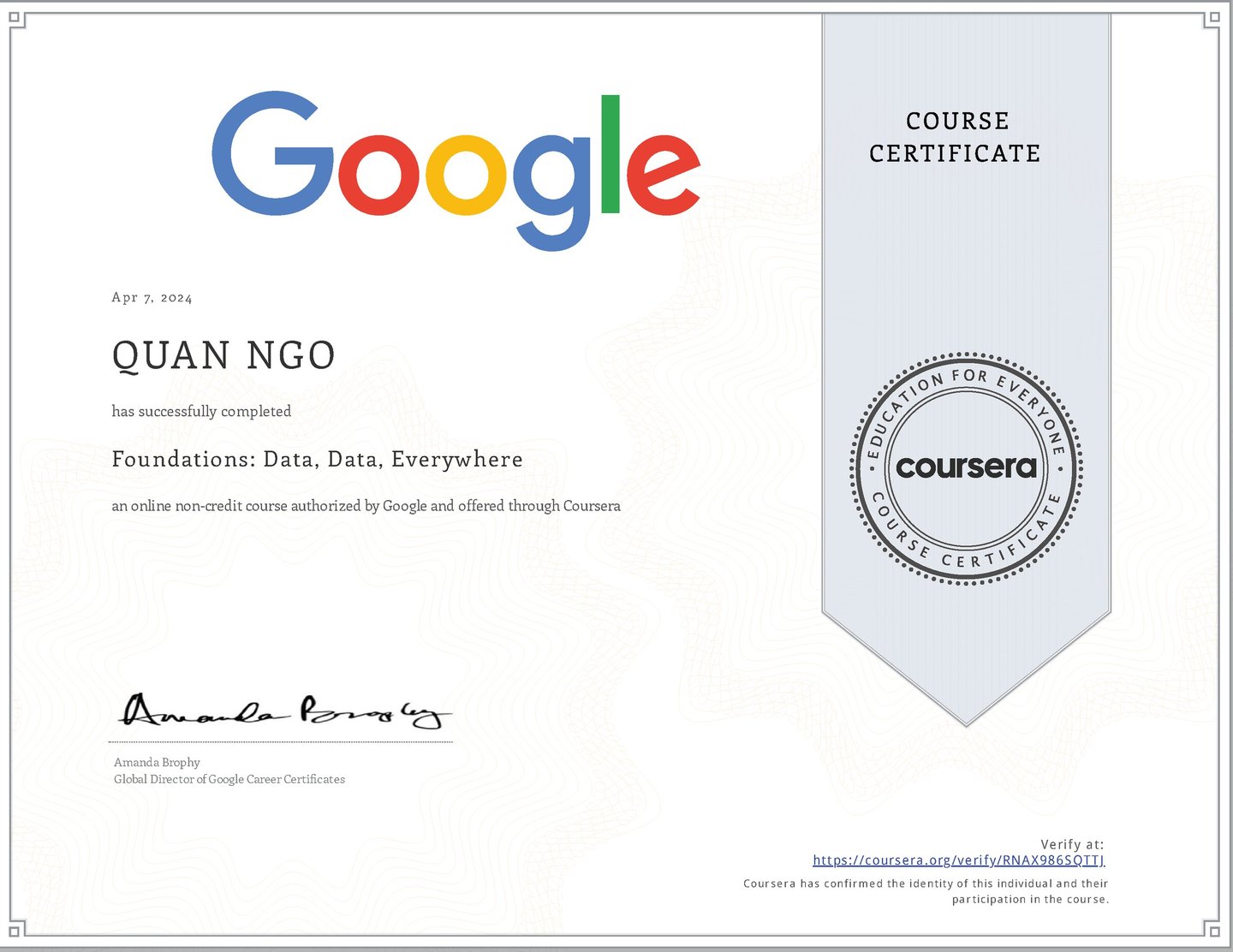

Acquired a deep understanding of the practices and processes used by junior or associate data analysts in their daily work.
Developed key analytical skills, including data cleaning, data analysis, and data visualization.
Gained proficiency in essential data tools, such as spreadsheets, SQL, R programming, and Tableau.
Learned how to clean and organize data effectively to prepare it for analysis.
Mastered techniques for conducting data analysis and calculations using tools like spreadsheets, SQL, and R.
Gained the ability to create impactful data visualizations and present findings through dashboards, presentations, and popular visualization platforms.
Developed the capability to communicate data-driven insights clearly to stakeholders.
AI - ARTIFICIAL INTELLIGENCE
FPT - FE EDUCATION
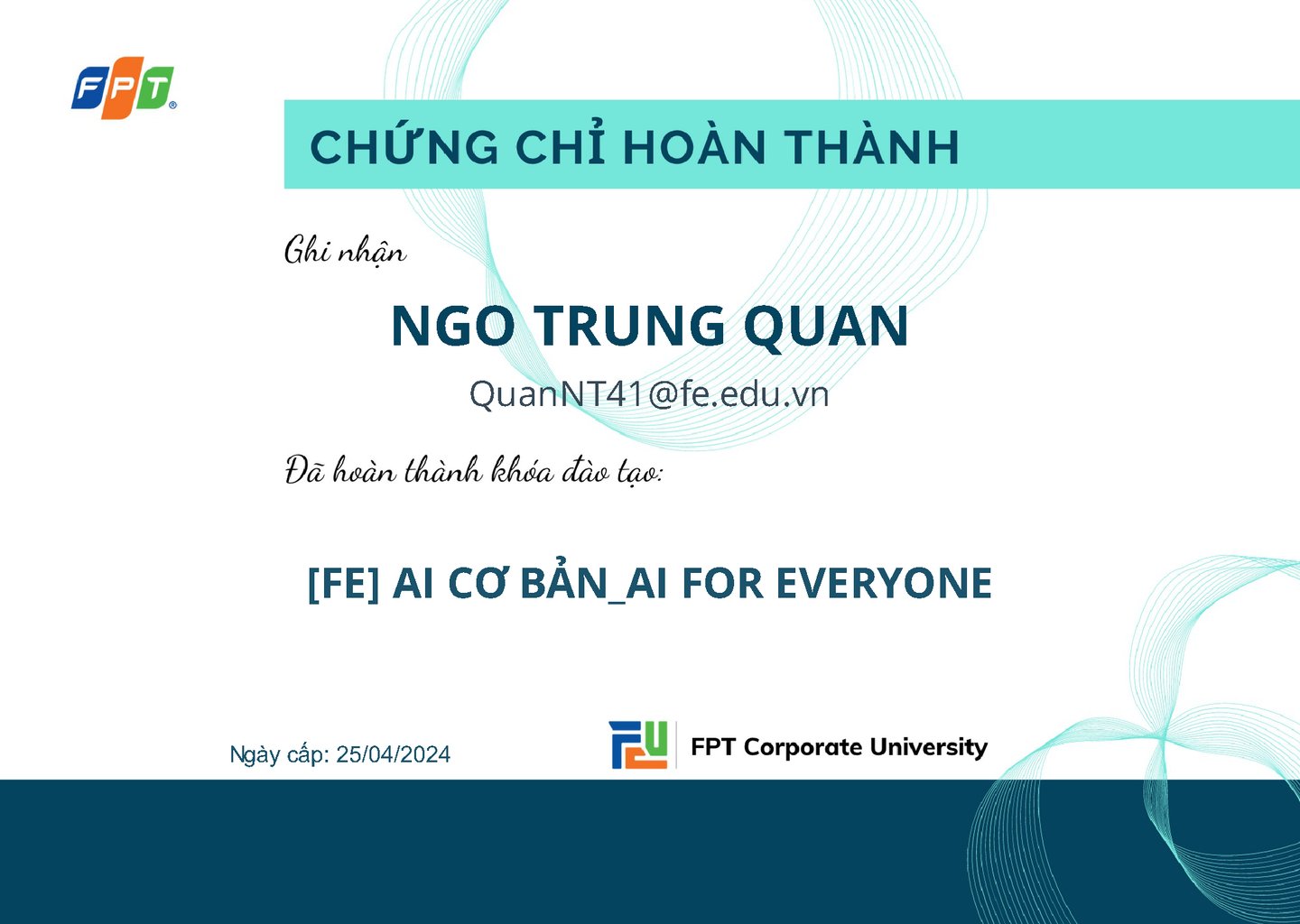

Gained an understanding of fundamental concepts and principles of Artificial Intelligence (AI).
Learned about key AI technologies, including machine learning, deep learning, and natural language processing.
Developed practical skills in building AI models and applying them to real-world problems.
Explored the ethical considerations and challenges of AI in modern technology and society.
Acquired knowledge in using AI development tools and platforms to create intelligent systems.
Gained insights into the future of AI and its potential impact on various industries.
Developed skills to communicate AI solutions and their applications effectively.



